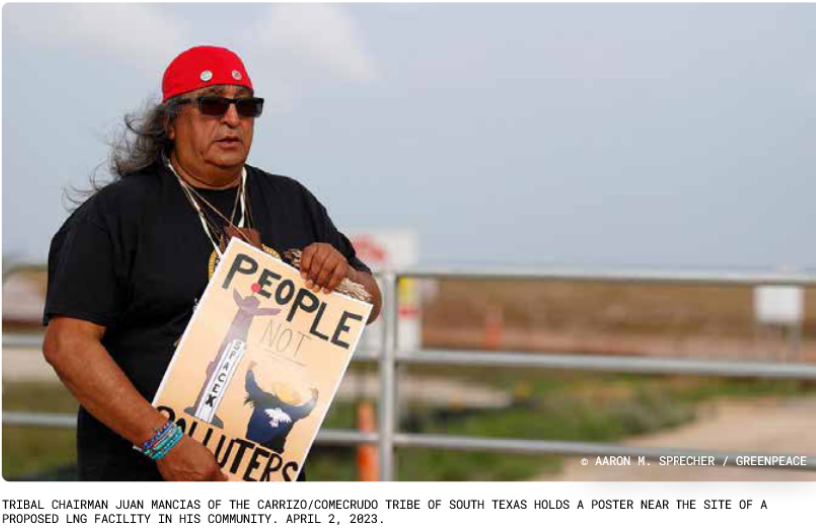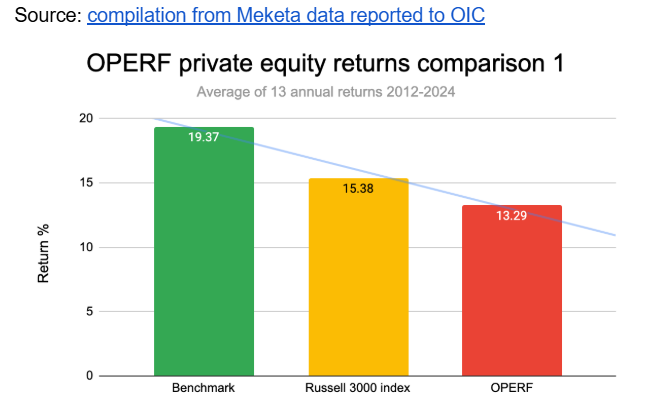REPORT: Oregon Treasury falling short on human rights, ESG metrics
Portland, OR -- The Oregon State Treasury is falling short when it comes to environmental, social, and governance (ESG) investing, concluded a new report released today by the Divest Oregon coalition, with supporting analysis from the United Nations (UN). “Oregon Treasury’s ESG Investment Failure” features case studies and details how the Treasury’s investments in oil, gas, and coal projects are linked to human rights violations, community destruction, and climate chaos. ESG metrics are increasingly used by asset managers and investors to screen investments based on risk and corporate practice. Investments causing devastation of communities and the environment are red flags for risky financial performance.
“From Uganda and Myanmar to our own backyard, the Oregon State Treasury is continuing to invest in companies engaged in high-risk oil, gas, and coal projects that are financially questionable and incompatible with a human rights agenda and ESG principles,” said Jenifer Schramm, co-lead of the Divest Oregon coalition. “You don’t have to just take our word for it: the UN places Oregon’s Treasury at the bottom of its ranking of big pension funds.”
In 2021, the United Nations ranked public pension funds by ESG standards and Oregon’s Public Employees Retirement Fund (OPERF) ranked 46th out of 47 funds. The UN reviewers flagged the following issues with OPERF:
- no use of any ESG screens for actual investment decisions
- no stated targets / goals for ESG investing
- no specific sector strategies (e.g., renewable energy)
- no climate risk metric monitoring or reporting of the use of specific climate targets / goals
- no evaluation or auditing of its ESG performance with specific metrics
- no evidence of any team dedicated to coordinate ESG investments
Oregon has a single large fund – 12th largest in the country – giving it significant market presence. OPERF was rated at the bottom in its ESG performance, 46th out of the 47 funds that were analyzed and just above a sovereign fund in the United Arab Emirates.
AFT-Oregon President Jaime Rodriguez said, “At last year’s Oregon AFL-CIO convention, AFT-Oregon’s executive council submitted a resolution, ‘Protecting the Human Rights of Unions, Activists, and Journalists Abroad.’ By approving this resolution, the Oregon AFL-CIO resolved to ‘encourage the implementation of a human rights screening for all future investments’ and ‘advocate for legislation, and to strengthen existing state laws to protect human rights at home and abroad, as related to Oregon’s financial investments.’ We share the concerns raised by Divest Oregon’s ESG report. As beneficiaries, we expect that the Treasury and OIC will start doing a better job of screening and removing PERS members’ investments from those companies with egregious environmental and human rights abuses.”
The report documents Oregon Treasury investments in highly polluting and destructive projects such as:
- EACOP: a crude oil pipeline that is displacing 118,000 people and threatens wetlands, wildlife, and fresh water sources that support millions of Africans
- Gavin Power Plant: one of the largest US coal plants which caused the “demise of an entire community”
- Willow Project: an oil extraction project that won’t produce oil until 2027 at the earliest, in a pristine wilderness which supports a fragile way of life for Indigenous people; an investment in continued use of fossil fuels for decades even as the ability to extract oil is threatened by climate change
In his inaugural address in 2016, State Treasurer Tobias Read committed to “always invest for the long term” to “address challenges that, if ignored, will impact all Oregonians,” specifically citing “an environment and economy threatened by climate change” as one of those “challenges.” This spring, Treasurer Read lobbied to undermine HB2601, which would have encouraged more transparency and accountability in the management of Oregon’s investments and stopped new fossil fuel investment.
“The Oregon Treasury must invest in non-destructive funds to reduce its harm to communities and procure a green future for generations,” said Susan Palmiter, co-lead of the Divest Oregon coalition. “Divestment from fossil fuels would help solve the Treasury's risky business practices. Removing fossil fuel investments from the portfolio would also be good for returns as recommended in the Treasury’s own commissioned Ortec reports on the climate risk to the PERS portfolio. It’s not if the Oregon Treasury will divest. It’s when - and how much they will lose before they do.”
Consolidated Oregon Indivisible Network commented, “COIN is grateful for the work that Divest Oregon has done to gather the information for this report, and for their continuing effort to hold Oregon's Treasury Department accountable for investments that worsen the climate crisis, threaten the health and well being of people around the world, and negatively impact Oregon's Public Employee Retirement System.”
“The Oregon Treasury is the 12th largest pension fund in the country, and they continue to invest hundreds of millions in new fossil fuel investments.” said Bill McKibben, 350.org and Third Act co-founder. “Divest Oregon is exposing the harm those investments cause because teachers and firefighters don’t want their retirement used to cause climate chaos, to force people off their land, or to destroy the clean water and air of their community. Business as usual is ecocide and this report — ‘Oregon Treasury’s ESG Investment Failure’— calls it out.”
Notes:
- Treasury’s Ortec Climate Risk Reports can only be found at Divest Oregon’s web site: https://www.divestoregon.org/climaterisk. These Treasury reports were procured through a lengthy public records request process.
- AFT-OR is an affiliate of the Oregon AFL-CIO, the statewide federation of labor unions representing over 300,000 working Oregonians.

Oregon State Treasury should engage or divest from companies fueling a new era of resource conflicts










